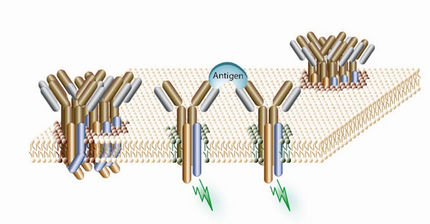Most important actors in the growth process of neurons identified
Advertisement
Defects in the growth process of our neurons often underlie brain or nerve diseases, such as Alzheimer's disease or multiple sclerosis. Scientists from the Flanders Interuniversity Institute for biotechnology (VIB) connected to the Katholieke Universiteit Leuven, led by Bassem Hassan, have achieved a major step in unraveling the growth process of axons, the offshoots of neurons. They have identified the JNK, Wnt and FGF signaling cascades as the most important actors and have also discovered their respective roles. Their research shows that the growth of axons and the activity of neurons are completely independent of each other. This new finding can lead to better understanding of a variety of nerve diseases.
Neurons have a number of long thin offshoots called axons that conduct electrical impulses. These primary elements of information transfer in the nervous system can sometimes be more than a meter long. The axon's orientation as it grows is also of great importance in forming the right connection. As in-coming stimuli are converted into signals that determine the direction and speed of an axon's growth, three things can happen: the axon can grow further, pull back, or change direction. Therefore, axon growth is a process that consists of several components: growth of the axon, orientation, recognition of objectives, and finally formation of synapses in order to transmit stimuli. Unraveling precisely how this whole process works is important for understanding the development of the brain and for helping develop therapies for diseases that are the consequence of damaged or diseased neurons.
From their study of the developing brain of an adult fruit fly, the researchers have found that axon growth is mediated by an interaction among three signal cascades: Wnt, FGF and JNK. JNK is necessary for stimulating the growth of axons. Wnt activates JNK and FGF inactivates JNK, so the right balance between Wnt and FGF provides for a precise regulation of the growth of neurons. Axonal growth turns out to be completely independent of neuronal activity. This finding brings greater clarity to the axon's growth process knowledge that constitutes a major step forward in understanding neuronal disorders.




















































